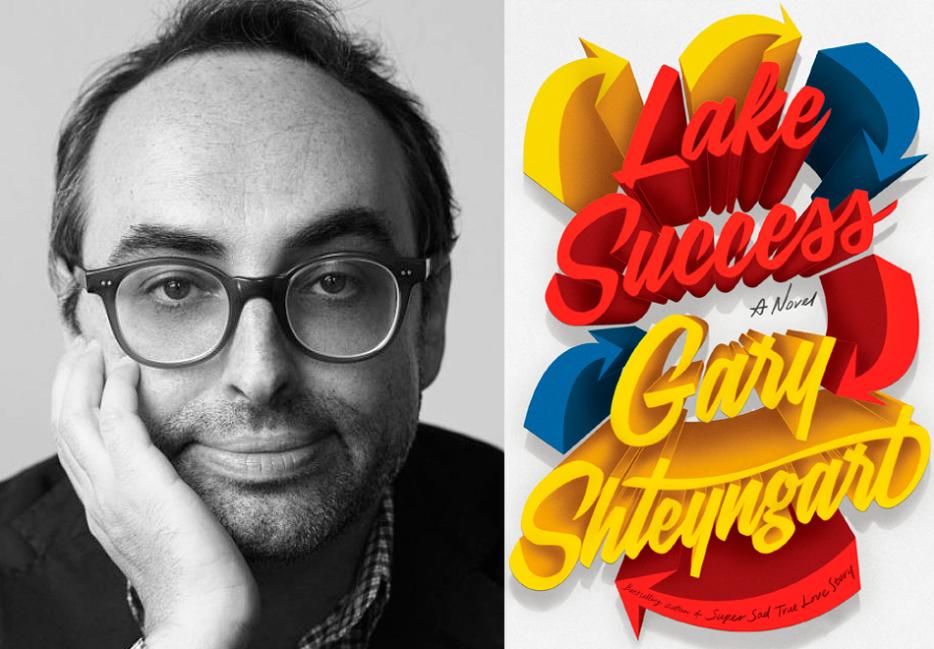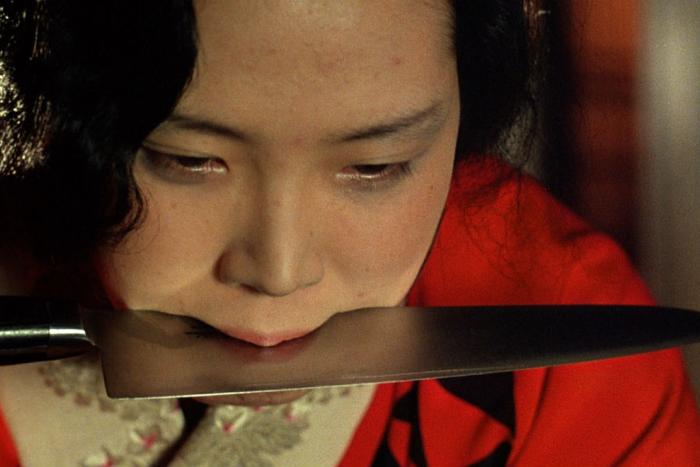Gary Shteyngart’s fourth novel, Lake Success, is a meditation on what it means to be middle-aged, and how the intrinsic values of love, responsibility, parenthood, and family shift accordingly. Shteyngart’s past work has great interest in what it means to be an immigrant and first generation American in a capitalist society, but Lake Success concerns itself with more insular themes. Rather than have Barry, a hedge-fund manager, engage with an outwardly capitalist society, the pretensions and casual racism that the wealthy carry are embodied within him, and he does his best to navigate growing away from those biases. His wife, Seema, a brilliant first-generation Indian-American, tries to navigate her identity and its meaning after Barry abruptly takes off, leaving her to reflect on her life while trying to care for their autistic son.
Eric Farwell: I wanted to start by asking you whether or not you find that as your body of work grows larger, you're imbuing your protagonists with less of your own sensibilities?
Gary Shteyngart: Yeah...I mean, there’s only so many times I can write the Russian-American novel, and even though Little Failure was written as a way to get rid of the all the material I had stored up, and, you know, try something new and a bit scarier in a way. Relying on the Russian-American background was always an easy way for me to differentiate my work, but I wanted to write an American novel without the Russian part.
Did you have anything in particular that you were looking to do with this new novel that was different in terms of approach?
Well, in some ways the novel is a lot less satirical than the other three novels, especially a novel like Absurdistan. It’s also the closest I’ve come to a social-realist novel. I hope it’s still funny, obviously, but the idea was to definitely capture what it’s like to live in very uncertain times, and there’s two ways to tackle that. You can try to find the humor in it, in the way of, you know, Charlie Chaplin’s The Great Dictator, and I do use humor in this novel, but in some ways it’s also the portrait of a family.
What I think has changed to a certain extent there is the fact that I now have a family, which makes a pretty massive difference in terms of the way I write. For me, so many of my books are written from a child’s perspective, and this is the first time I’m also writing from a parent’s perspective. These parents have a kid with a disability, and how they deal with that is, I think...I want to be kinder to all my characters as they navigate the challenges of their lives. Some people will say, “How can you be kind to a hedge-fund guy,” and that was sort of a challenge I set for myself. By the end of the book, can I make people, not agree with Barry, but in some way see the glimmer of humanity that’s lost in these stacks of money, and the ill-gotten ways in which this money was earned?
That’s one of the interesting things about your work, especially the last two works. Your most recent two novels both deal with finance and the sort of value judgments we make about others in different income brackets. What attracts you to writing about the competitively wealthy in America?
I did a piece for The New Yorker where I profiled a hedge-fund guy, and the appeal to me is that I kind of come from this background of the ultra-competitive because I went to this math and science school called Stuyvesant in New York, which is now very much in the news. There’s a kind of cultural war being waged because the school is predominantly Asian and white, and doesn’t really reflect demographics in the city. Immersing myself in the hedge-fund world, which I did for many years, meant going back to that Stuyvesant mentality. Stuyvesant was a place where so many of us were cheating on their exams, trying to get ahead in any way possible. The kind of distance Stuyvesant kids often feel from the rest of New York’s school population is similar to the kind of feeling I noticed bankers and hedge-fund guys exuding, this kind of, “Well, I worked so hard so I deserve all this,” without taking note of what they were doing to the world at large. If you earn that much money, I do think you’re contributing to the kind of inequality we see around the world that has lead to the most awful political outcome in the history of our nation.
I think that connects with your writing about being a sort of reformed Republican. As someone who used to be a serious Republican and has crafted a book about one, do you feel that capturing that thinking is going to become more difficult with the rise of things like the Alt-Right and these fringe pockets of the party seemingly dominating the identity of the party in the modern age?
When we were Republicans growing up, what motivated the Republicanism in Queens, apart from being immigrants ourselves, was a kind of innate racism. Republicanism and racism were really indistinguishable to me. We were cheering on South Africa’s white regime at that point. To me, white supremacy and Republicanism went together. When I was a kid, Republicanism was almost a kind of religion. It was this idea that, well, you’re not successful yourself, you’re an immigrant, you don’t speak the language, but there are a lot of people you can look down at just because of the color of their skin. I think that’s one reason why this kind of last-ditch effort against multiculturalism on the part of a very small community seems to be so effective these days. So, growing up Republican was a huge asset to me in understanding what’s happening today. I mean, even in writing a book like Super Sad True Love Story, my main character, Lenny Abramov, isn’t Republican anymore, but his parents still are. Understanding that is a kind of weird blessing for me. As a writer, it’s important to see as many views as you can, even if you find some of them to be personally repugnant.
In your memoir Little Failure, you characterize your father as a very complex, looming presence in your own life. How do you think your work has changed since you made peace with that?
Yeah, the memoir was partly written because I was going to have a kid, and I wanted to settle some accounts before he was born. I wanted to sort through my life to make sure that the good stuff stays, and the bad stuff could be mitigated. We all end up being our parents to some extent. I don’t believe that literature should be therapeutic in nature. I think you write for the art, not the therapy, but in this case I think the memoir happened because I was going to have a kid. I was writing the book at thirty-nine, which is early to be writing a memoir. Usually writing a memoir is kind of like settling a sort of last bar tab, if you will—for me, the great sense of anxiety I always felt was toward my parents, and whether or not I would please them. I remember going to Stuyvesant as a place with a lot of kids who were terrified of failing their parents. While that’s something all of my characters sort of bring to the table, when you have a kid, there’s this secondary anxiety, which is that now you’re anxious for the kid. The cycle continues. You’re trying not to make the same mistakes as your parents, and looking at your kid, wondering whether or not he has the same fundamental flaws. It expands your vocabulary, your understanding about the human condition, which is always good for a writer.
It seems also like you're now interested not so much in capturing the power immigrant parents have over their children, but in what exactly it means to be an immigrant artist, or a person of certain cultural heritage, in an authentic way. What made you want to make the shift toward raising questions of authenticity, rather than questions of lineage?
My parents grew up in a superpower, and the one thing they did that was certainly correct was to leave and take me with them. Now, there’s a weird sense of almost having history repeating itself, where my son is growing up in a dysfunctional superpower. If this keeps going the way it’s going, when is a good time to leave?
Is that something you think about?
Not yet, but let’s see how this plays out. When I was writing Super Sad during Obama, the country seemed to be going in a basically decent direction. But I always had this feeling that underneath the goodwill of those times, there were some incredible reservoirs of anger still sloshing around our country. Maybe that’s because I grew up as a Republican. I knew the kind of darkness that fueled our hatred. I knew what we were capable of when we found the right demagogue.
Does that anger connect with how you portrayed Luis in the new work? The question of how authentically Guatemalan Luis is comes up over and over, seemingly only because he's a successful novelist. Do you think that immigrants often have their authenticity or immigrant-ness questioned when they achieve things in America?
I think you sometimes get it from both sides, with native-born Americans asking if you’re familiar enough to write about this country, and immigrants asking whether or not you’re immigrant enough to be speaking to the culture of your parents, and what it’s like to be displaced from that. I think, for me, I don’t believe in these questions of authenticity. I think if you’re a 1.5 generation immigrant, then you write about that life. If you’re third-generation, then you speak to that experience. In my earlier books, I would return to Russia, to understand the country, but more so my parents, and that was the thrust of going to Russia as many times as I did. What’s interesting is that I always thought that after 1991, Russia would become more like America, and in some ways the opposite has happened. I did an article for The New York Times where I watched Russian television for a week, and the racism, sexism, and homophobia that permeates the airwaves there is now something that permeates the airwaves here. So, there’s a real connection there. I think the writer Luis in Lake Success is the other side of the equation. As cold and calculating as some of the hedge-fund people are, he also has his own way of making his way in the world. His whole schtick is representing himself as something that he’s really not.
But what would you say that is? Is it authenticity, or is it that he’s pretending to be a serious novelist when he’s really not?
Well, we never read Luis’s novel The Pathetic Butcher, but I think the title alone gives you the idea that he’s writing with a calculated way to prey on the affections and heartstrings of someone like Seema, Barry’s wife, who is herself an immigrant that’s trying to figure out her relationship with her parents. I guess, in some ways, I believe that there’s this kind of immigrant literature of, “We came, we saw, we conquered,” and that just strikes me as a little bit off, and is why I prefer a satirical approach. To me, being an immigrant is sad and funny in some ways, but it also has this element of being a satire of cultures, that you came from the culture you’re in, and so you see America in a way that more native Americans don’t, the unending silliness of this particular society.
This strangeness is kind of refracted in a unique way in Lake Success, because it’s built on the belief that being a good parent can make one a good person, or wash away their sins. It also portends that children either destroy or keep marriages afloat, not necessarily love. I was hoping you could discuss this a little bit.
I don’t know that having a kid can redeem you, but it can either bring out your best or worst impulses. Throughout the book for Barry it’s the worst, but something changes in him toward the end of the novel. Look, we live in tough times. If you talk to people, they talk about trying to communicate to their kids that the president is a bully and a racist. This reminds me of growing up in Russia, where my parents also had this very difficult duty. We lived in an authoritarian society where you could only say so much. They wanted me to know that things weren’t so good, and it was very hard to do so. It was only when we left Russia that they were fully able to unburden themselves about how they felt about the regime. Of course, we are still a society where you can say whatever you want, but at what point will there be issues with that? At what point does a parent telling her child the truth become an “enemy of the people” like the non-Fox media already is in Trump’s view? I think being a parent in an authoritarian system—and that’s half the parents in the world—is a balancing act of its own.
Getting back to this point about how one is raised, and what one sees in their own culture, you mentioned earlier that you always saw Republicanism as this sort of party of racism. On occasion, you've received criticism for crafting male characters that are culturally unaware, to the point where it can begin to border on racist. I'm curious how you feel about this, since so much of what you write about in your memoir illuminates some of the casual racism of immigrant parents, and you could argue that these moments in your fiction are capturing the authentic experience of first-generation Americans.
That’s how I think of it. I know it’ll put some people off, and I know some readers will say, “Well, this is almost a trigger for me. I can’t handle somebody like this.” A lot of what I write has a very journalistic flavor. Absurdistan was written after spending time in countries that resembled Absurdistan. A lot of it was what actually happened in those countries. Lake Success was written after a bus trip across the country, where many of the things that happened to Barry happened to me. I think for me...the dream of every writer is that you’re read six hundred years from now. I’m not saying that’ll happen for me, but that’s the hope. So, the idea for me is always, you know, fifty years from now, six-hundred years from now, if somebody picks up the book, they should be able to understand why people like Barry existed, and how they fit into their societies. That really is the goal. I think sometimes people don’t quite understand just how racist, or, not even racist, but just casually unaware and hateful so much of our population really is. To soften the edges, I think, would be a disservice to the truth. These are the people who are in charge of our country, those people who go, “I’m socially liberal but fiscally conservative.” It has such an impact on the way Barry interacts with people, and those who are different from him. Often, he’s somewhat racist, but more than anything he’s patronizing, and I think that has to be part of the equation. Otherwise, you’re skimping on the truth. You’re doing a Luis and giving the reader what they want, something nice and pretty. That’s not the literature I loved growing up, and it’s not what I want to write.
That whole idea of being fiscally conservative and socially liberal was parodied recently on Reductress, which is this humor site that runs feminist parodies of the sort of sexist self-improvement articles that women’s magazines often run. I think the crux is that a woman is on a date with a guy, and he’s proud to identify as that, like it makes him heroic.
They are very proud of themselves. I’ll tell you, in hanging out in the hedge-fund world, there was a lot of alt-right sentiment even before Trump was elected. So, all those people who are socially liberal but fiscally conservative wore that as a badge of honor. It’s their version of being woke. It’s like, “Wow, I like black people, I deserve a medal! I don’t know any, but in theory, I think they’re great!” People get angry at comedians for making fun of Trump supporters. I think humor is very important here, and I think we have to keep doing it. I think it trickles down. There’s an understanding that people get, and humor’s a very important weapon. We can’t not write about the Barrys of the world. I mean, compared to Stephen Miller, Barry’s a marshmallow! Even so, he’s a part of the problem, and he has to be written as such.
Speaking of the value of humor, I wanted to shift and a bit and talk about the categorization of your work. Your work, along with Lorrie Moore's, Ottessa Moshfegh's, Paul Beatty's, Sam Lipsyte's, and Donald Antrim's, gets a lot of attention for being literary and funny, yet, unlike a humorist's work, it's never considered seriously as a work of comedy. I wanted to know if those boundaries we put up between genres ever bother you, even if your work is more serious than not?
It’s a real pain in the ass. You don’t really get this in the UK, this separation between “funny” and “literary,” but frankly I’d rather be the former than the latter. This gets at another issue for me, which is that literary fiction, the way Luis practices it anyway, is supposed to be serious with a capital “S.” It’s supposed to diverge from storytelling, and create some kind of hybrid thing, which is fine, but for me, I tell stories, and the humor is there. I want to sit down and tell you something that I won’t guarantee will change your life, but hopefully for three hundred pages you’ll feel okay and be somewhat entertained, which is still important to me. You know, we kind of ceded the ability to tell a funny story that can be taken seriously to television. Literature has always pushed out the comic novel, or created a very small space for it. In some ways, I think it’s coming back. You mentioned all of these wonderful writers, who I think are now being taken more seriously. I don’t really care what the literary community thinks of me, it’s connecting with readers that’s very important to me. I’ve been very blessed to have great readers who get the work, who come out when I do my tours, who give me their asthma inhalers to sign. I also think that with each book, there’s a slight sort of...you know, people are used to certain kind of work from me, and there’s this feeling of, “Oh my God, he’s done something a bit different.” Absurdistan was straight up satire. Super Sad had more of a tender side. Then I did a memoir, which from some of my readers was like, “What the hell is this?” Now I have a novel that I’m hoping is still pretty funny, but has more of a realistic edge, a less satirical edge. I can’t keep writing the same book. I have to change. Evelyn Waugh was a straight up satirist for most of his life, and then came out with Brideshead Revisited, which I still think is his best work. I may disagree with him in many ways, but I think there’s something to be said for constantly evolving your writing and looking for something new.
Speaking of that, I know that Super Sad True Love Story was optioned by Showtime a few years back.
Yeah...there’s stuff happening with it, but not that particular deal. I mean, the thing with Super Sad is that in order to adapt it, it would require major recalibration after Trump, since so much of what happened in that book has happened in real life. Frankly, worse things have happened. The book has moments of outright authoritarianism in it, but I’m not sure I would have put children being torn out of the arms of their parents at the US-Mexico border into it. I would’ve said, “That’s maybe taking it a bit too far.” There are concentration camps sort of upstate, but at least you get to keep your kids in that version. Whereas in reality, we’re a little more heartless than the kind dictators in Super Sad.
Well, to go back to my categorization question, if the show comes out, I imagine it would be billed as a comedy.
Probably, but I’m fine with that. Look, I watch a lot of television, and what I love about it is the way comedy is infused in so much of these great works. Breaking Bad was darkly funny. Better Call Saul is hilarious, but also quite serious. SMILF has a dark humor to it. It just goes on and on. These shows have a wonderful and natural relationship with humor, so I’d have no problem with that.
I wanted to end by asking about the evolution of relationships in your work. In Little Failure and Super Sad True Love Story, you characterize love as positive affirmations being bestowed upon the lowly male by an impossibly attractive woman. In other words, there's maybe a superficiality or neediness that births it, which makes what you deal with in earlier works more infatuation than love. In Lake Success, the protagonists, Barry and Seema, are trying to find their way to love, not with each other, but with people they believe are less superficial, or at least more capable of being less superficial. Can you articulate the shifts that occurred in your own understanding of love that led to this richer examination of coupling?
I think that when you’re married, you can either continue to make the superficial mistakes you made before, or you try to fix it. I think Barry and Seema are both trying to fix things. They’re desperate to fix things. Without giving too much away for the reader, they both come to different conclusions about how to do that by the end of the book. If middle-age is the constant repetition of the mistakes of youth, then you have to stop living like you’re still twenty-seven. This is my first middle-aged novel. Remember, in Super Sad, Lenny was in love with a younger woman, but also looking for immortality. In a sense, he’s trying to repeat and enjoy his mistakes over and over. Barry, in spite of himself, knows that life is going to end. He has a kid who he doesn’t know how to take care of. He has a wife that he believes doesn’t love him. He hates himself as well. He has a father who never quite understood how to take care of him, and a mother who died when he was very young. So he’s trying to have a mature relationship, he’s trying to go beyond mere infatuation. That’s the dream for Barry, and the reader can determine whether or not he succeeds.






